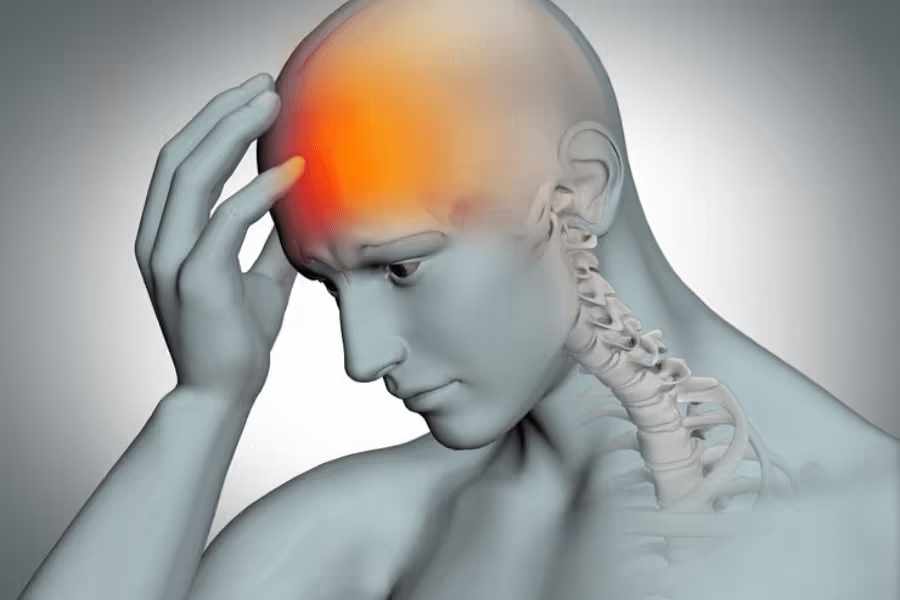Alper's Disease
Overview

Alpers disease is a very rare, progressive, neurological syndrome caused by a mutation of the polymerase POLG gene. It is mitochondrial DNA depletion syndrome characterised by three clinical symptoms: dementia, liver disease, and seizures.
Alpers disease is characterized by the occurrence of rapid and severe neurological deterioration in early childhood, in a healthy or mildly retarded child, with seizures and fatal outcomes within a few months of the onset.
Individuals with Alpers syndrome have problems with coordination and balance. The damaged peripheral nerves (Neuropathy) can lead to abnormal reflexes. Affected individuals may develop weak muscle tone while losing the ability to control the muscles.
Symptoms
As the disease progresses, the following symptoms can occur-
Refractory epilepsy, commonly called seizures is the first sign that occurs. The rest could be…
• Dementia - mental illness
• Optic atrophy - causing blindness
• Dysphagia - difficulty swallowing
• Liver cirrhosis - liver failure
• Cardiomyopathy - disease of the heart muscle
• Ataxia - diseases that affect movement and coordination.
• Gastrointestinal diseases – problems of the gut
• Loss of control of arms and legs - a type of cerebral palsy.
Causes & Risks
Here are some points regarding the causes and risks of Alpers disease:
• Alpers disease is caused by mutations in the POLG gene. This gene provides instructions for making one part, the alpha subunit, of a protein called polymerase gamma
• The disease is inherited through an autosomal recessive agent.
• The risk of developing the syndrome increases in closely related marriages.
• The most dangerous risk factor for Alper’s syndrome is fatal toxic hepatitis. There is severe liver failure, following changes in the biliary tract. Liver fibrosis can indicate lesions of the hepatobiliary system.
• With the progression of Alper’s disease, hypotonia develop.
Test & Diagnosis
Alpers disease is diagnosed by looking for the symptoms of dementia, liver disease, and seizures. Other tests may include:
• Test for Cerebrospinal fluid:
Fluid is collected from the person’s lower back with a spinal tap. The fluid is tested for cerebral folate deficiency.
• Electroencephalography (EEG):
The health care provider uses the EEG to measure the brain’s electrical signals. They place metal disks on the patient’s scalp to look at the brain activity.
• Genetic testing:
The healthcare provider will take a blood sample
to examine the building blocks of the patient’s genes for mutations.
• Magnetic resonance imaging (MRI):
MRI of the brain will show an increased mass of grey matter with Alpers disease.
Treatment
The Treatment includes:
• Percutaneous endoscopic gastrostomy, to help with nutrition and hydration.
• Frequent, small, low-protein meals.
• Massage, to reduce stress.
• Anticonvulsant medications, to help lessen seizures.
• Palliative Care - like intravenous hydration, administration of nutrient mixtures; relief of seizures; elimination of hypoxia by hyperbaric oxygenation; oxygen support, and artificial ventilation. Palliative care also includes social and psychological care for the patient’s family members.
• Conservative Therapy – Doctors recommend antioxidants that have a positive effect and improve metabolic parameters, anticonvulsants for managing epileptic seizures, and infusion solutions for the correction of water electrolytes.
Living With
Persons with alpers disease may need extra support as the condition progresses. People who can help cope with the disease can include specialists such as home health nurses. They can help manage care as alpers disease worsens.
In the final stages, a palliative care team can provide support. This technique can help manage symptoms. Palliative care includes social and psychological care for the patient’s family members too
Expert advice can be obtained for - Gastrointestinal tract problems, Nutrition, and Psychiatry.
With the help of support groups and timely treatment, patients with Alpers disease can relieve the symptoms to maintain a stable condition, reducing pain and suffering.
Complications
There could be several complications with Alpers disease:
• Spasticity - Abnormal increased stiffness. It may also be called unusual tightness or increased muscle tone.
• Myoclonus – sudden brief Involuntary jerking or twitching of one or a group of muscles. The twitching cannot be controlled by the patients experiencing it.
• Dementia - a condition characterized by progressive or persistent loss of intellectual functioning. It generally involves memory loss, affecting their daily lives.
• Seizures – a burst of uncontrolled electrical activity between brain cells, that causes temporary abnormalities in movements, behaviors, or sensations.
• Sepsis-associated encephalopathy - a disease that alters brain function, and diffuse cerebral dysfunction.





